What it feels like to get divorced—and possibly remarried—at TED 2023
An offering from your emotional-reporter-at-large.
I’m sitting in the airport in Seattle, waiting to take the red-eye flight back to New York from the weeklong TED conference, when I get the marriage proposal.
An earnest one.
I stare at the offer on the little phone screen; I feel a disorienting rush of blood to the brain and a cocktail of emotions: flattery, joy, sympathy, anger.
How could he do this to me?
Why do I even have to feel these feelings?
Must I answer?
How did I get myself in this position?
I’m tired.
I managed to get only five or six hours of sleep a night at the conference. The night before this, I’d slept for three hours.
I spent five full days at TED, sitting in a semi-dark theater watching eighty speakers perform eighty talks.
And let’s remember what a TED talk is. It’s not so much a talk as an intensely prepared piece of theatrical monologue, with lights and makeup and hundreds of hours of preparation and rehearsal.
It’s a hard thing to do. I’ve done it. That was a long time ago.
Now? I couldn’t imagine having the time and headspace to prepare and deliver a TED talk.
Some days, lately, I can barely get to the breakfast dishes. Some days, lately, I feel like Covid and the pandemic fundamentally changed my capacity to do and to be.
To do is to be. To be is to do. Do be do be do. I have been listening to my old Frank Sinatra records.
This was my seventh (I think) time attending a weeklong TED conference. The first was in 2013, when I delivered my TED talk “The Art of Asking” (which has since racked up close to 20 million views across platforms, thank-you-very-much), and after that, I started making an annual pilgrimage back to TED-land to see other people deliver their talks.
It takes place nowadays at the Vancouver Convention Center, where upward of 2,000 attendees spend a jam-packed week alternately watching TED talks and bumbling around the convention center and their various nearby hotels, trying to socialize and network while attempting to digest the amount of information that is delivered from the stage to your brain. It’s very intense.
You’ve probably seen a TED talk. This conference is where most of the TED talks are filmed. Talks about genetics and CRISPR, talks about bats, birds and murmurations, talks about racism, colorblindness and affirmative action, talks about the advances in prosthetics, poverty, power and powerlessness, talks about AI (and more AI, and more AI), and talks about how to apologize to your children after you accidentally fucking yell at them. You know: TED talks. This is where the sausage is made.
I took a Covid test the day before departing to make sure I was negative before getting on a plane. I found myself wishing for two lines.
No luck. I go.
The theme of this year’s TED conference was:
Possibility.
I roll my eyes. Oh, TED. Isn’t that just . . . everything?
You might as well just call it that. This year’s TED theme, and every year’s theme, is. . .
Everything.
I have felt relentlessly exhausted since April 2020, one month into Covid, and the month I first asked for a divorce.
I have not been able to untangle which parts of this tiredness are pandemic, which parts are motherhood, which parts are divorce, which parts are possibly due to having actually had Covid, which parts are due to two back-to-back bouts of culture shock—I shifted countries twice, circumstantially—and which parts are owed to my entire extended family changing shape during the course of all this.
My family has grown, shrunk, warped, welcomed, razed, fizzled, fractured. The center has not held.
The first town I inhabited with Ash, my seven-year-old son, in New Zealand (we were Covid-waylaid there from March 2020 until recently) was recently hit by massive flooding. Our little lockdown farm town on the North Island, devastated. The photos my old accidental Kiwi friends sent over—cars, homes, entire histories buried in meters of silt and sludge—feel emotionally familiar. They look like my life. Some things are salvageable. Some things are just going to live in that silt forever, donated to the earth: the family heirlooms, the handmade quilts, the children’s books, the journals and cross-stitch of the great-grandmothers. Gone.
My heart feels heavy in my body lately, as if it’s put on twenty pounds, as if it’s bloated, as if it’s being consumed by some mysterious tumor that’s triple its weight.
I’m tired of carrying it around, but I have to if I want to get from place to place—I need it for breathing and living and stuff.
I don’t want to generalize, but I generalize all the time. My friend Michael told me the other day to be careful of that. You tend to speak in absolutes, he said, and it can be confusing.
I’m trying to learn, I tell him meekly. It’s funny, because nothing feels absolute to me. Everything feels blurry, hazy, vague, broken. Wait: okay, maybe not Everything.
But maybe I’m allowed to say that. I’m a poet, goddammit, a musician, a writer. If somebody is allowed to speak in absolutes, isn’t it us? I mean, we’re the ones who brought you This Is the Way the World Ends, Everything Is Awesome, It’s the End of the World as We Know It, There Is a Crack in Everything, That’s How the Light blah blah blah.
That’s us, that’s our job. We’ll explain. We got this. Everybody Hurts. I have my own personal favorite lyric from one of my own songs: Everyone you love is gonna die. But that one is TRUE! I swear. That’s not generalizing.
Maybe the TED conference could tell me.
I wrote a brief letter to my more than 10,000 patrons—who, let’s be honest, single-handedly provided me the ability to afford the trip to the conference in the first place—committing myself to writing a thoughtful piece about “what I learned at TED.” This, I promised myself (and my patrons), would give my attention some focus. It would be more fun, I figured, sitting in the dark TED theater, pen and notebook in hand, feeling like a reporter. Trying to pull out some themes. Attending TED as a poet on a mission.
My heart, my head, my poetry—it’s been steeped in a dark vat of dye lately: everything is divorce-colored. When I sit down to write, that’s all I can write about. When songs are delivered to my head, they’re divorce-shaped. I am grieving: grieving a marriage, grieving a family, grieving a possible life. My songs reflect that, and when I’m songwriting (which is all the time, yo), the information that sprinkles in from the outside world takes on the shape of whatever is inside me. The TED talks about prosthetic limbs seem to be about surviving divorce. The TED talks about genetic mutations seem to be about divorce. The TED talks about the murmurations of birds seem to be about . . . divorce. You get the gist here.
But I think I’ve managed to get past the first few stages of divorce grief. I’m done with denial and anger and murking my way through bargaining, depression and acceptance.
I think TED simultaneously exacerbated my pain and sped up my grief.
Like, I dunno, a friend accidentally dislocating your shoulder while trying to shake you awake as the flash flood is heading toward the house.
Here are some of the things I learned at TED:
(You are free to fact-check these TED speakers’ data. I’m too tired. I just work here.)
Every day, China now installs the equivalent of 600 football fields’ worth of solar power panels.
“Life” on Earth started 4 billion years ago, but we forget that for 2.5 billion years, life was just unicellular organisms. Just one cell! (Wait: Do we really forget? Or do we just not spend much time thinking about this?)
This is a hockey-stick moment for humanity: the growth of technology is now explosive and exponential.
The robots are coming, and they may or may not save us.
Bats pass down local dialects to their offspring.
There is a panicked question at the moment about whether people are copyright-able.
As John Cage already said many moons ago: silence is an illusion, sound is everywhere, and there is no such thing as quiet.
………
I sit down for a catch-up one morning with a friend who’s a psychologist.
I tell her, in detail, what has happened to my life.
Her jaw drops, her eyes widen.
Her jaw drops some more.
I mention PTSD. She reminds me that the term “post-traumatic stress disorder,” or “PTSD,” is being overused at the moment.
The problem with a lot of us, Amanda, she says, is that we are not “post”-anything.
You’re still in the thick of it. You have acute anxiety, because none of these things are in the past.
It’s still happening to you.
This is true, and I find it strangely comforting.
Post-anything, my ass.
She has a good point.
She cries. I cry.
We go back into the dark theater.
Fetal turtles make sounds from the womb—little communicative baby-turtle-meeps to their pregnant turtle-mothers—that help the two find each other after the baby turtle is born on the beach and mom is hanging out in the water. The baby turtle uses these sounds to reunite as it wades back into the ocean to find mom.
We use half of the earth’s habitable land for farming.
Beethoven was deaf, ill, lonely, depressed and suicidal when he wrote some of his most beautiful music.
I take a break in the lobby over lunch and read the New York Times.
Guns, guns, and more guns. I miss New Zealand, where people are not getting mass-shot every day.
It feels like we’ve simply lost the war.
Has the war even started? Has the war started and we just aren’t calling it that?
The wrong driveway.
The wrong fucking driveway.
You turn into the wrong driveway in America and you get shot?
It feels like we are all circling, afraid to park in any driveway.
The guy who invented Duolingo gets up to speak and tells us how powerful and addictive the psychology of “streaks” is.
I guiltily think about how addicted I am to my Wordle streak, even though nobody sees it, ever.
I think about my alcoholic relatives. I think about how fucking predictable and fallible and manipulatable we are.
I want to leave TED, fly home, hug Ash.
I want to arm him, not with guns but with a nuclear-level bullshit detector.
ChatGPT and AI will provide a personal tutor to every child with access to the internet.
ChatGPT and AI are going to change modern warfare as we know it so quickly that we won’t know what hit us.
ChatGPT and AI will save the world.
ChatGPT and AI will end the world.
ChatGPT and AI will let you hang out with the digital dead forever.
ChatGPT and AI mean you can have a long, thoughtful discourse with the fictional, tragic hero of The Great Gatsby.
ChatGPT and AI are going to make the world a better place for everyone living in extreme poverty.
ChatGPT and AI are going to render everything you’ve ever known and learned useless in your lifetime.
I go to bed. I dream.
The water is rising. I’m lost, circling, in the wrong driveway.
The car is filling with silt, Ash is strapped in the back, and some old racist white dude is yelling at us from the porch, pointing his gun at our car.
I freeze.
I wake up drenched in sweat and go to another day of TED talks.
America fears change.
America is crossing over into a majority non-white society.
People are dying of Bullying.
Confirmation bias is at an all-time high.
America is heading toward a civil war.
It’s no longer about questioning authority, it’s about questioning the algorithm.
When two waves are exactly the same size and fit together, they resonate in perfect harmony.
If two waves are the same size but set exactly alternately against one another, they cancel each other out.
This is called interference.
This is how noise-canceling headphones work, and this is the technology underlying the new lightbulbs that will be powered wirelessly.
Electrical cords will soon be a thing of the past, and they’re gonna put solar power stations up near the sun to power all electrical things on Earth.
Maybe it will solve the climate crisis.
If two waves are the same size but set exactly alternately against one another, they cancel each other out.
I go to bed again.
This night, I writhe in bed, unable to sleep.
This is called interference.
Constructive interference happens when two waves overlap in such a way that they combine to create a larger wave.
Destructive interference happens when two waves overlap in such a way that they cancel each other out.
This is how noise-canceling headphones work, and how cordless lightbulbs will be powered, and why marriages will end.
Constructive Interference is Marriage, what happens when two people work to support, embolden and enlighten one another.
Destructive Interference is Divorce. It is what happens when two waves overlap in such a way that they cancel each other out.
I wake up twice, fall asleep twice, wake up, have a coffee, and go to more TED talks.
Penrose tiling—a form of architectural patterning that wasn’t actually invented by Roger Penrose, he just kinda figured it out—points to an underlying unity, which is why old religions loved putting it on their churches.
The first Bahamian man to set foot on the North Pole shares his conceptual artwork with us, including an encyclopedia of lost knowledge.
Nadya from Pussy Riot, who I know from interviewing her on my podcast, takes the stage and delivers a personal message to Vladimir Putin, staring down the barrel of the TED television camera.
You are afraid, she says to him, and you will lose.
I think about speed, I think about cadence, I think about togetherness.
I think about how much it hurt my heart to watch my Patreon numbers collapse during the pandemic, because I couldn’t support and listen to my community.
I think about the thousands of unanswered messages from my own patrons, whose money carried me through all of New Zealand, sitting unanswered in my inbox.
I think about Ash and how it’s all fine because everyone knows I was taking care of my kid.
I watch the murmuration of birds—flying in seemingly psychic synchronicity—flash across the massive 100-foot screen behind the third TED speaker to riff on the goddamn murmuration of birds.
Their perception is microscopic. They know, because they pay attention.
You are afraid, she says to him, and you will lose.
But also, there is still hope, I want to say to him, and you could win. It’s never too late to come to the table of love, truth and connection.
I imagine Putin coming as a surprise guest to the TED stage, tears in his eyes, walking down the center aisle to where Nadya from Pussy Riot stands in a long black dress, and getting on his knees.
I am sorry, he says. I am so, so sorry. I was afraid. I was lost. I will do better.
I wonder if she’d forgive him.
Standing ovation.
Bats can hear shape.
Plants can eat sun.
Human beings are facing a Crisis of Belonging.
A woman who was training to be a world-class violinist as a small child snaps a tendon just as she is accepted as a student of Itzhak Perlman and thinks she’s on her way to Carnegie Hall. Her future as a violinist dashed in an instant. A man who was headed to the top of the football profession went too far and broke himself—he trained himself to the point of exhaustion and his knee literally buckled beneath him during his NFL tryout.
They both found soft closure after their tragedies. Their pain vaulted them into new and more meaningful territories of connection.
They embraced their tragedies and turned them into giant learnings. They left their football and violin marriages—wounded and sad, learning to be comfortable with no fucking closure—and remarried other passions.
The founder and CEO of a gazillion-dollar company gets up and talks about his bipolar disorder and how he fucked up his whole family.
He hit rock bottom, admitted he had serious mental health problems, and got to his knees. He told the truth and begged for forgiveness.
It was terrifying.
He had one—little—child. His wife stood by him, even though he’d been actively abusive and violently assaulted them.
I am sorry. I am so, so sorry. I was afraid. I was lost. I will do better.
She forgave him.
He shares his entire meds regimen. He gets a standing ovation.
I wonder if I’ll remarry.
I never really wanted to get married in the first place.
I remember that I’m still married, because my divorce isn’t inked and legal yet.
It feels bananas.
I go to bed and I wake up and go to some more TED talks.
The metaverse is dead.
Freedom and property rights are inseparable.
We will live in a future of virtual consumer goods.
Shareholder capitalism will win the day.
I think about my patrons, and whether they feel they have any ownership of me and my work.
I’ve asked. They don’t.
I wonder if I should give a TED talk about how our understanding of art and ownership is getting more and more toxic.
I wonder what went wrong with the webcast I did the night before and why the link broke and wonder whether I’ll ever be able to figure out how to use the internet or maybe I should just give up and travel house to house on a bicycle with a begging bowl for food, my child in a sidecar, and a sign around my neck that reads “Have a piano? Will play for food and lodging.” I could then turn this experience into a TED talk and a best-selling book.
I take a break from the session and sit in the lobby, staring at the wall.
Photo taken by me, a few days after returning from TED to Woodstock, New York. Rock thrown by Ash.
………
Back in the airport, in some corner of the non-existent metaverse, the marriage proposal haunts me. He wants an answer.
He wants an answer NOW.
Like, right now.
Who puts that kind of pressure on a person?
Now?
Is that love?
I want to tell him:
Yes and No. Schrödinger’s wedding.
I want to tell him:
When two waves are exactly the same size and fit together, they resonate in perfect harmony.
If two waves are the same size but set exactly alternately against one another, they cancel each other out.
This is called interference.
I want to tell him:
Bats can hear shape.
Plants can eat sun.
Human beings are, in fact, facing a Crisis of Belonging.
………
A doctor who invented a revolutionary way of numbing pain takes the stage and talks about the opioid crisis.
Dead people everywhere, unnecessarily.
She tells us that part of the problem is that we are obsessed with becoming pain-free, instead of understanding that pain is a healthy signal coming from a healthy body, and that experiencing pain is a necessary part of being human. She tells us that pain isn’t a fire alarm crying for the numbing of pain, it’s a learning system. Pain is our friend. A symphony of connections that we must embrace.
I wonder if I’m going to have wine at dinner that night. I’m sad and tired and in pain. I probably will. I think again about all the alcoholics in my family. I return my attention to the talk.
She tells us that vibration triggers the nerves that decrease pain. So does cold. I think about my newfound addiction to cold plunging. How it clarifies, and makes the pain stop for—at least—the few moments I am in the water. I’d rather be addicted to cold plunging than oxycodone. I figure: there’s a win. I’m in extreme pain, but I have managed not to become a drug addict. I am awesome.
I settle into my seat and keep listening to the doctor.
She says:
Studies have been done. Certain people actually feel more pain.
She says:
What you feel is mostly what you expect to feel.
I want to hug her. I find her after the talk. I hug her.
Then another doctor gets on the stage and shows a photo of some dirt in a faraway land. Ancient human ruins. We see dust and a bone, a broken femur, healed.
Look closely, she says. This is thousands of years old.
This is a broken femur that has healed; evidence that another person has taken time to sit with the fallen, has bound up the wound, has carried the person to safety and has tended them through recovery.
People do things for people. They always have. I think about Mister Rogers.
Look for the helpers.
I look for my helpers.
I write the quote down and text it to my friends Coco, Holly and Sophie.
They understand. Sophie sends pictures of the New Mexican desert she’s currently traversing.
I feel less alone.
A gynecologist takes the stage and makes a plea for more accessible birth control. He talks about how many women can’t get on the pill for one reason or another, and how impossible it can be for women in poorer areas to get access to IUDs and other forms of birth control.
When women are given better access to more kinds of contraception, surprise surprise, abortion rates and child poverty rates plummet.
I am grumpy with TED for not proffering a talk about the state of abortion rights in America.
TED has always shied away from the topic, and it angers me.
I wonder if I should give a TED talk about abortion.
I wonder if I should give a TED talk about patronage.
I wonder if I should give a TED talk about making art and trauma. (Spoiler alert: It’s complicated.)
I wonder if I should go back to grad school and learn about bats and bees and orca whales and become a woman with long hair parted in the middle who can give a TED talk—calmly and solemnly—about the sounds bats and bees and orcas make to tell stories to one another.
………
Sitting in the airport, I wonder if I should accept the marriage proposal. I mean: why not.
Everything changes, and changes back, and changes again, and the world is full of possibility.
TED taught me that!
I remember once when I was about twenty, my boyfriend proposed.
A real proposal. An earnest one.
He was a summer boyfriend; I was between my junior and senior years at Wesleyan.
A musician. A stallion. He had incredibly long, beautiful hair. The sex was amazing.
He said: Marry Me.
I had dinner with my old mentor Anthony that night, and I tried it out on him, the concept.
Why not? I said.
What if? I said.
NOBODY in college gets married! People would flip out! I could go back to Wesleyan and shock and awe everybody in my dorm with the fact that I GOT MARRIED over the summer.
They’d never believe it in a million years.
I could get married! Why not get married?
Beauty, he said. Please. For the love of Jesus. Don’t be fuckin’ stupid.
………
A woman who is a child psychologist takes the stage and talks about how ironically shameful it feels when she—the expert on children—yells at her own child.
She wants to talk to us about repair.
I immediately take a huge breath and try not to squirm in my seat.
Here we go, I think, here we go.
Repair, she says, assumes there’s been a rupture.
You have to look at your entire life, she intimates, as an exercise in simply getting good at repair. That way, even when there’s a rupture—a catastrophe, a meltdown, a cancellation—you are just doing the thing you’re getting good at: repairing.
She talks about how children internalize and make the whole world about them. I have felt this so much with Ash. He thinks he made everything happen.
She talks about children who are raised in a world that douses them in shame.
When a parent yells at a child, the child storms off to his room and blames himself.
He thinks: I am bad.
He thinks: I am unlovable.
He thinks: I make bad things happen.
Yep, the tears come.
The doctor says:
Studies have been done.
Certain people actually feel more pain.
She says:
What you feel is mostly what you expect to feel.
I want to tell him:
Bats can hear shape.
Plants can eat sun.
Human beings are, in fact, facing a Crisis of Belonging.
I want to tell him:
Everything changes, and changes back, and changes again, and the world is full of possibility.
I want to tell him:
Yes.
She says: When you repair something with your child, or with anyone for that matter, you are making safety. You are making connection.
You are saying: I will not let this chapter of your life end in self-blame.
I think about every lover and friend I’ve ever had.
I will not let this chapter of your life end in self-blame.
Saying this to another human:
This is love, in spoken form.
A lovely-looking guy with long hair comes onstage and talks about the SF/fantasy novel he co-wrote with an AI bot, and how he thinks it’s better than a novel he would have written by himself.
Then comes the man with the dazzling new technology demo. (There is always one of these at TED.)
He is showing us what may replace handheld smartphones: the new wearable tech.
The phone is nearly invisible; the voice is everything.
Where does the body end and the world begin? he asks.
He speaks a phrase in English into the tiny button on his lapel, and it not only translates it into French on the spot but does so in his own voice, with his cadence and lilt.
A simultaneous voice-into-voice translator.
So in a few years, this technology will hit the market, and you’ll be able to stand there without a phone and chat with someone in another language, using your AI voice.
Language barriers will melt.
Soon, I imagine, they will be telling us that emotional misunderstandings will be a thing of the past, thanks to ChatGPT and AI. Soon, I imagine, language “marriers” will solve the world’s miscommunication problems.
We will live Pain-Free.
I feel confronted and sad and itchy and old. I want the mystery! I want foreign languages! I want hardback books!
Just aesthetically and for reasons that have nothing to do with economics: I hate the euro.
I miss the colorful currency of the French and Dutch paper bills.
Why must everything change.
I don’t want anything to change.
I want the mess and stumble of my known universe to stay still, locked, arrested.
I miss records. I miss mixtapes.
I feel terrified and irrelevant.
I wonder if I’ll be thinking about this moment in ten years when I’m traveling in China, chatting with new friends using our little invisible apps in a noisy restaurant, sharing the emotional stories of our shared humanity.
I wonder why my thinking is so limited.
I wonder what I should do with my life.
I want to take a nap.
I need a snack.
So I wander into the lobby, and a CEO of a multinational corporation comes up to me and tells me he’s a patron of mine and sees that my glasses are filthy.
He gives me a small disposable cloth to clean my glasses with, looks at me with incredible tenderness and pity, and tells me that he feels like a father to me.
I start crying, hug and thank him, and glumly head toward the snacks, pausing for a moment on my journey to—like the addict—attempt the day’s Wordle puzzle, which I fail to solve, because I am childish and deliberately suggest words that I know the New York Times will never use, even though they are real. I am annoyed at my own stupid stubbornness. At the snack table, I coincidentally meet another of my patrons, who’s a successful business coach from Australia.
I tell her how every time I come to TED, I realize what a terrible businessperson I am.
I run a million-dollar business every year from the seat of my pants and off the cuff, and I feel like it leaks money and possibility every year. She nods.
I continue: because mostly what I want to do is make art, raise my kid, and not run a business. I’m also too stubborn to let anybody else run it, because I despise being told what to do.
It’s not too bad, actually. I’m fine with being a good artist and a mediocre businessperson.
She nods again.
We both agree that someday it may change, and we laugh, and I have a fucking snack, and I feel better about everything.
We go back into the theater.
An Irish economist comes onstage and recites Yeats.
Turning and turning in the widening gyre
The falcon cannot hear the falconer;
Things fall apart; the centre cannot hold. . .
He reminds us of the year this was written.
Hitler was just on the ascendancy. Nobody believed that another war was really coming.
Mere anarchy is loosed upon the world,
The blood-dimmed tide is loosed, and everywhere
The ceremony of innocence is drowned;
The best lack all conviction, while the worst
Are full of passionate intensity.
The economists pooh-poohed the notion that the last war—The Great War, The War to End All Wars—could possibly be repeated.
The poets had a different take.
The poets felt it coming.
The poets said:
Surely some revelation is at hand;
Surely the Second Coming is at hand.
………
The most repeated catchword of the conference is “guardrails.”
We need guardrails, says the AI expert.
We need guardrails, says the climate scientist.
We need guardrails, says the economist.
We need guardrails, says the CEO of TikTok.
What does the poet say?
We do not need guardrails, says the poet.
Says this poet, at least.
We do not need guardrails. We need to build entirely different roads.
………
I arrive two hours early for my flight back to New York.
I plonk down in the first available chair at the gate, and a fellow plonks down next to me. He’s with three friends, who are all sitting in the row across from him.
They’re all joking with one another in French. I feel their pleasant camaraderie and wonder who they are, what they’re up to, where they’re going.
Nigerian? Congolese? I’m trying to remember which countries in Africa are the French-speaking ones.
He makes eye contact with me. Bonjour, I say, pleased with my impressive school-French accent.
He barely speaks English, but he now wants to talk.
I try to converse with him in my terrible French, but I fail miserably after a few attempts.
He repeats himself.
Pardon? I say. Je suis désolée. Mon Français est tres mauvais.
He repeats himself.
I say: Pardon?
He pulls out his phone and brings up his Google Translate app. He speaks into his phone, the app translates his voice into text, and he shows me the screen.
Where are you from? Where are you going? The screen asks me. He then points to the phone and to the record button, indicating that he wants me to answer in English; the phone will translate.
I’m from New York, and I am going home, I say into the phone. Where are you from?
The screen thinks for a minute, and my reply magically arrives.
Je viens de New York et je rentre chez moi. D’où viens tu?
Dear lord, my French answer looks so sophisticated. He speaks into the phone and presses the translate button. He shows me the screen.
He’s from Africa, from Chad.
For ten minutes, we communicate this way.
I learn that he’s getting his American green card, that he’s living in Brooklyn, that he’s been in Seattle visiting other friends from Chad.
He learns that I’m living not in New York City but upstate, inside of the trees (the app says that, I didn’t, and I like it, so I don’t correct it), and that I love New York City.
I say it is the best city in the world.
New York est la meilleure ville du monde.
He reads that one and laughs and smiles and leans forward to show the phone to his friends.
They all smile at me. We are all getting along famously.
He has never heard of TED talks or the TED conference. I tell him about what I have learned at TED. I ask him what I hope are delightful questions.
Saviez-vous que les chauves-souris parents transmettent les dialectes locaux à leurs enfants?
He did not know that parent bats pass down local dialects to their children.
He tells me I am very beautiful. The conversation takes a turn into the slightly uncomfortable. Oh no.
Merci.
I tell him I am very flattered and thank you for such a kind compliment.
He asks me to marry him.
Then he is staring at me, expectantly.
He looks very serious. He wants an answer.
A part of me, an infinitesimally tiny part of me, wants to say yes. I feel twenty again, and filled with hopeful stupidity.
Why not? I think.
What if? I think.
NOBODY goes to the airport and decides to get married to some random guy they met at the gate!
People would flip out! I could go back to Woodstock and shock and awe everybody in town with the fact that I GOT MARRIED to the guy I met at the airport!
They’d never believe it in a million years.
Maybe this was the moment I needed in my life. What was the theme of this year’s TED conference?
Possibility?
I think about our potential life together. Me and my husband from Chad. Would he move upstate? Would we live in the city? Would I meet his family from Chad?
Would they like me? Would Ash dig him as a stepparent? I mean. We are clearly very different. I mean, beyond the obvious language barrier, there’s quite a chasm.
But for fuck’s sake, the chasm between my last husband and me may be even vaster. These metrics are weird. Who’s to say.
We do not need guardrails, we need to build entirely different roads. Maybe my road leads to Chad. My brain, this brain, this poet brain that entertains every possibility.
This brain has gotten me in a lotta trouble.
After ten years of constant miscommunication with my ex-husband, I developed a new and constant refrain: I want to make sure you know that what I am about to say is an idea, a delightful fantasy.
I like fantasizing aloud. This does not mean the fantasy is a plan. This is not a plan. Got it? An idea. Not a Plan. Not a plan. An idea.
An idea. Not a plan.
He holds up the phone. I take a deep breath. He presses record.
I tell him (well, I tell Google Translate) that I am very flattered by the kind offer, but I am sorry, I am already married, which is not REALLY a lie.
I wonder why I need to share my marital status, even though it feels, really, well, like a lie.
He looks at me sadly, then he turns his head away.
I smile sadly and turn my head away.
Then we sit there in awkward silence for a few minutes.
I refuse to change seats. That would be wrong.
He looks away. I look away.
I play Wordle on my phone (I don’t want to break my streak). His friends slow their conversation down to a respectful hush.
We sit there in this stalemate for a few more minutes.
Then he speaks, a final time, into his phone in French, and shows me the screen.
I look into his eyes, and then into his phone.
I am still thinking of you, the screen says.
………
Things fall apart; the centre cannot hold.
………
I want to tell him:
Bats can hear shape.
Plants can eat sun.
Human beings are, in fact, facing a Crisis of Belonging.
I smile at him. I shake my head.
I want this flight to board.
I have finished my Wordle puzzle of the day (“Unzip,” go figure). The flight departure is now a half-hour late.
A woman flicks on the loudspeaker and announces that the plane is having technical difficulties; we need to go to a new plane, which is waiting at a new gate in a different terminal.
She gives us directions. Two trains. It is 11:30 p.m. I grab my backpack and my ukulele, scuttle away from my future not-husband because I am terrified that we’ll wind up striding to the new gate in awkward tandem, and head to D5 with a herd of 200 disgruntled fellow passengers.
At the top of an escalator—about five minutes into my journey to the new gate—someone calls my name.
Amanda.
I turn around. There is a man. As if my night could get any weirder. Hi.
I’m Noel, he says, I saw you across the hall and I chased you down. I hope you don’t think I’m weird. I’m one of your patrons.
Oh my god, Noel. No. No, I don’t think you’re weird. I just dealt with a marriage proposal delivered to me via Google Translate.
I’ve been following everything you’ve been going through. I’m sorry. This is awkward, but your music means a lot me. I wanted to thank you for everything you’ve been doing, even with all you’ve been going through.
I say:
You cannot imagine what it means to me, Noel, that you happened to tell me that in this particular moment.
I drop my bags and I take Noel in my arms.
He doesn’t seem to mind.
I am crying.
Repair, she says, assumes there’s been a rupture.
She says:
What you feel is mostly what you expect to feel.
Bats can hear shape.
Plants can eat sun.
I will not let this chapter of your life end in self-blame.
Human beings are, in fact, facing a Crisis of Belonging.
There is still hope, and you could win.
Surely
surely. . .
surely some revelation is at hand.
I am still thinking of you.
Published on April 26, 2023.
Copyright ©2023 Amanda Palmer.
Final turtle image credit.
If you’d like to see the video reading of this piece (fair warning, I cry a lot), you can find it HERE on Patreon. It is a locked post, but a $1 subscription gets you in.
This piece of writing was funded by my subscribers here on Substack, and by 10,000+ patrons at patreon.com/amandapalmer, where I centralize funding and community support for my life and artwork. Please, if you enjoyed reading this, consider following along and supporting. My Substack is primarily just an outlet for my writing and advice column “Ask Amanda,” which is free to the public (or, if you prefer to support, it’s $5 for sustaining subscribers, who also get a video reading of every Substack piece I publish).
My Patreon is more general and includes a more constant stream of musings, content and updates about music, life, The Dresden Dolls (my band) and so forth. It costs $1 or more to join the Patreon, and if you’d like to come support me there and join our community, it’d mean the world to me. You can do so here. Thank you.
You can see the entire lineup of TED speakers from 2023 here.
Thank you for coming to my TED talk.
xx
AFP

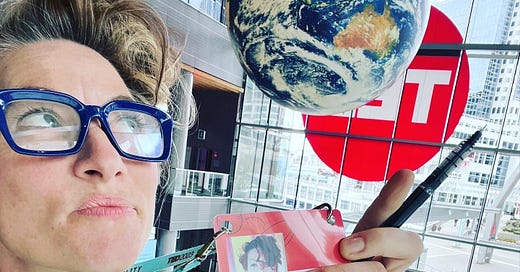





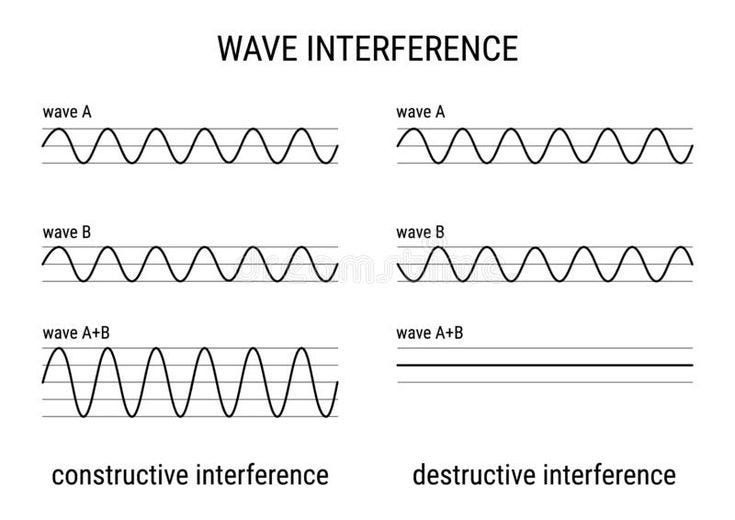


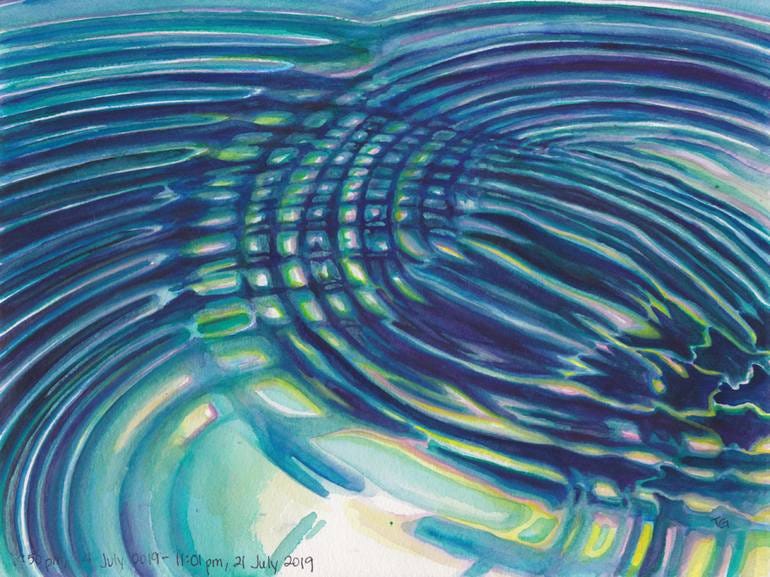
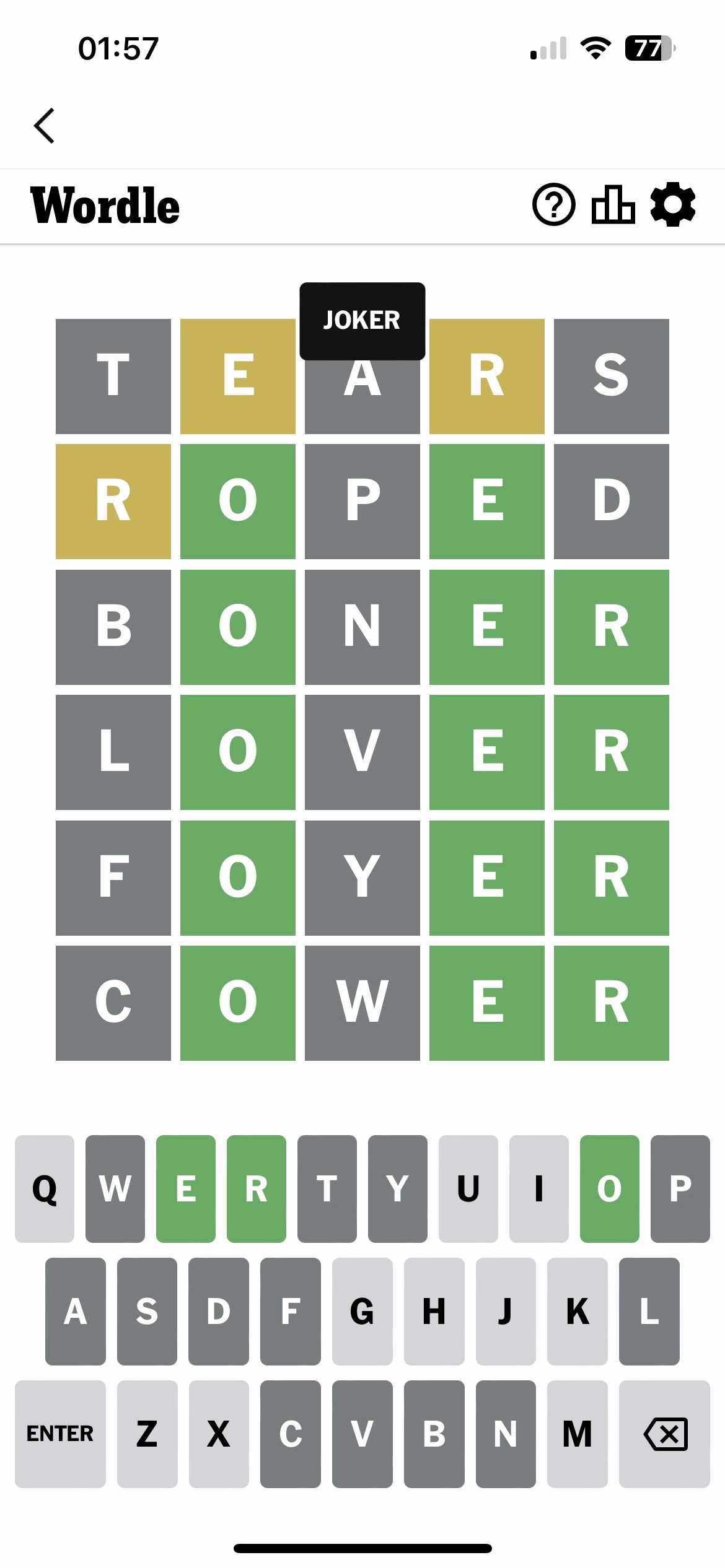
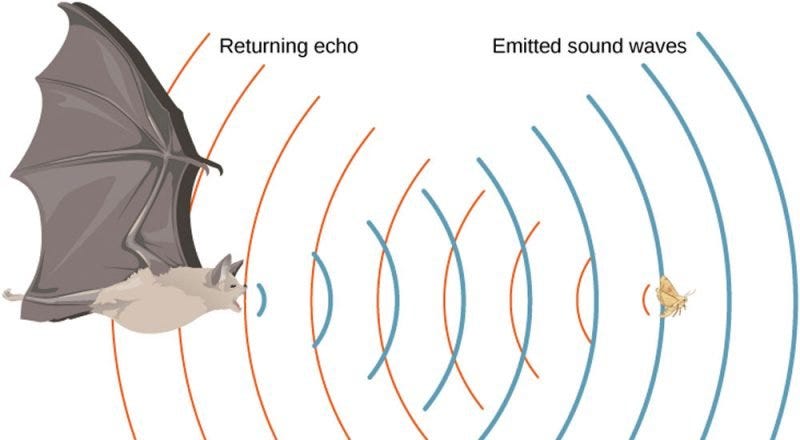


And boom - Nadya's message to Putin was just published on TED.com....go watch it. It's very powerful. https://www.ted.com/talks/nadya_tolokonnikova_pussy_riot_s_powerful_message_to_vladimir_putin/c
OH! And....I'm on tour in the next few weeks everybody....
This Friday, April 28th - Poughkeepsie, NY - Bardavon *ALMOST SOLD OUT*
This Saturday, April 29th - Boston, MA - The Wilbur Theater *ALMOST SOLD OUT*
May 19th, 20th, & 21st - Denver, CO - Ophelia's Electric Soapbox *SOLD OUT*
May 26th, 27th, & 28th - Santa Fe, NM - Meow Wolf *SOLD OUT*
June 16th, 17th, & 18th - Orlando, FL - The Social *SOLD OUT*
June 23rd, 24th, & 25th - New Orleans, LA - Toulouse Theatre *SOLD OUT*
All tickets at: https://amandapalmer.net/events/